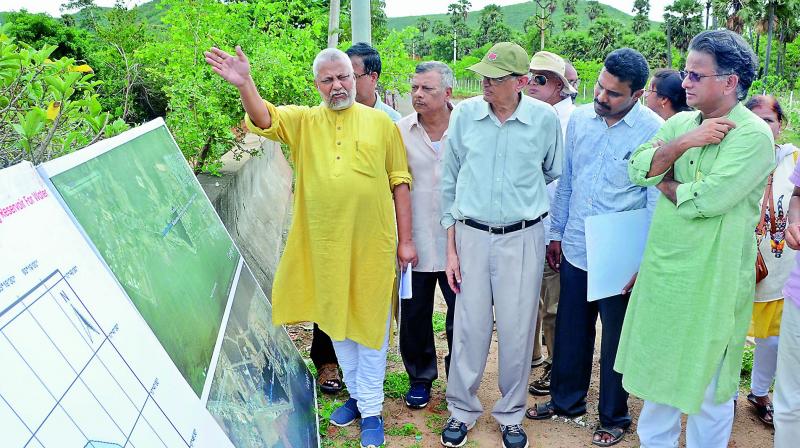Improve water bodies: Dr Rajendra Singh
The water man of India to participate in 3-day programme.

Visakhapatnam: As part of three-day programme to revive reservoirs, rivers and tanks in Uttarandhra region, members of Jal Biradari (Water Community) visited Mudasarlova reservoir in Vizag on Saturday to share their knowledge of river rejuvenation.
The members include water conservationist Dr Rajendra Singh, former energy secretary E.A.S. Sarma, Jal Biradari national convener Bolisetty Satyanarayana and others. They gave tips to the locals on how to improve groundwater levels and solve the water crisis in the area.
Presently, drinking water crisis is severe in Chennai as the city has gone completely dry with deficit rainfall this year. Most of the people are depending on water tankers and private players for daily needs.
Pointing out that situation, Dr Rajendra Singh alerted the city dwellers to preserve water resources by focusing on water conservation and rainwater harvesting. It is the responsibility of every individual to recharge the local water bodies, he said.
Known as ‘waterman of India’, he has revived 12 dead rivers in Rajasthan, Maharashtra and Tamil Nadu by motivating people and stakeholders without any cost to the exchequer. Observing dried up reservoir and blocked streams, he highlighted the need to improve them.
On the occasion, Mr Sarma said: “As a result of mismanagement of the precious groundwater resources, the water table in most urban areas and even in rural areas has been declining. The industrial pollutants have contaminated many groundwater aquifers.”
“Revival of water bodies will help recharge the groundwater aquifers. In urban areas, the regulatory authorities must place restrictions on spacing borewells to restore the balance between the water drawals with the annual rainwater inflows,” he said.
The former bureaucrat alleged that the AP Pollution Control Board (APPCB) has not been effective in regulating industrial pollution. Jal Biradari members also motivated the local communities to demand effective regulation of industrial pollution.

